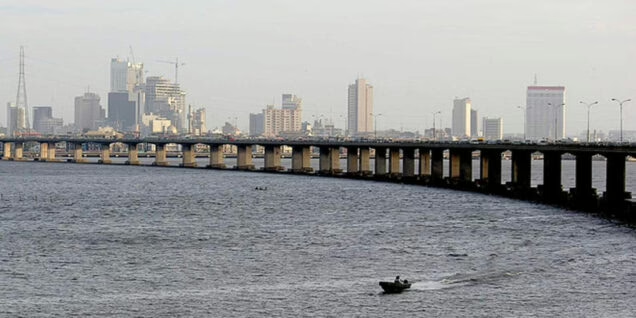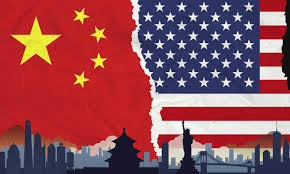ISAAC ASABOR
In yet another blow to already struggling households, Nigerian electricity consumers have been hit with a second price hike on electricity meters within four months. As of November 5, 2024, Distribution Companies (DisCos) across Nigeria have raised the cost of single-phase meters to a range of N117, 000 to N149, 800, while three-phase meters come at even higher costs, depending on the provider and region. This move, which the DisCos attribute to the current economic climate and deregulated market policies, has sparked a wave of frustration and distrust among consumers.
For many Nigerians, access to electricity is already marred by unreliable power supply, unpredictable billing, and escalating tariffs. Adding an increase in meter prices to the mix only deepens the financial strain. Across social media platforms and in community gatherings, residents are expressing despair over what they view as an insatiable push for profits by the DisCos, who seem indifferent to the harsh realities faced by the common man.
EXPOSED!! POPULAR ABUJA DOCTOR REVEALED HIDDEN SECRET ON HOW MEN CAN NATURALLY AND PERMANENTLY CURE POOR ERECTION,QUICK EJACULATION, SMALL AND SHAMEFUL MANHOOD WITHOUT SIDE EFFECTS. EVEN IF YOU ARE HYPERTENSIVE OR DIABETIC ..STOP THE USE OF HARD DRUG FOR SEX!! IT KILLS!
“Every time we turn around, there’s another increase,” laments Uche Iweala, a Lagos-based civil servant. “It feels like every day, something is being taken away from us. I already struggle to keep the lights on with the bills, and now they want me to pay even more just to get an accurate meter. It’s unfair.”
The meter hike, as gathered, coincides with rising inflation and increased costs of essential goods, forcing Nigerian families to make difficult choices. Many households must now decide between securing accurate metering, or allocating funds to more immediate needs like food, healthcare, and school fees.
The discontent among Nigerians is palpable. Some, like Musa Bello from Idi-Araba in Lagos, have been waiting for a prepaid meter for years. Now, with the increased costs, he doubts he will ever be able to afford one. “The government talks about making electricity affordable, but this just pushes it further out of reach. I’ve been on the estimated billing system for so long, and I thought getting a prepaid meter would bring me relief,” he shares. “But with this price, where am I supposed to find that kind of money?”
Kehinde Arokola, a small business owner in Oregun, Ikeja, Lagos, relies heavily on electricity for his tailoring business, and he describes the meter price hike as devastating. “The deregulation policy is supposed to make things better, but instead, it’s becoming worse for us,” he explains. “I have a family to take care of, children in school, and now this? It feels like they are trying to push us to the breaking point.”
Even for those who already own meters, the price hikes raise concerns. If such price adjustments continue, many fear they might extend to other essential services, turning basic utilities into luxuries only a few can afford.
When the Nigerian Electricity Regulatory Commission (NERC) implemented deregulation policies, the intent was to create a free market that would, in theory, allow for more competitive and transparent pricing. But, according to critics, the reality has been far from ideal. Consumer advocacy groups argue that rather than promoting affordability, deregulation has paved the way for continuous price increases without significant improvement in service or access.
Nkem Eke, a consumer rights advocate, voices the frustration of many Nigerians. “NERC’s deregulation policy has left consumers vulnerable to these unchecked hikes. Deregulation was supposed to increase competition and service delivery, but all we’ve seen so far is higher prices with no real improvement in service,” she says. “There needs to be an immediate reassessment of these policies, as they are clearly failing the Nigerian people.”
The high upfront costs for meters have even broader social implications, affecting the willingness of consumers to subscribe to prepaid services and further discouraging the adoption of accurate billing systems. This development not only harms the consumers but could have economic repercussions, as households cut down on electricity use, ultimately reducing the revenue for electricity providers.
A prevailing sentiment among Nigerians is that deregulation has not translated into the intended benefits for the general populace. Instead, it seems to have served the interests of the DisCos, whose justification for price hikes often centers on operational costs and economic conditions, like inflation and foreign exchange fluctuations. The lack of transparency surrounding how prices are set has only fueled consumers’ distrust.
Advertisement
Civil society organizations and consumer advocacy groups are urging the government to intervene, calling for a return to a more regulated approach or, at minimum, subsidies for low-income households. “Electricity is not a luxury, it’s a necessity,” argues Abike Adewale, spokesperson for the Nigerian Consumers Coalition. “We cannot stand by while prices keep rising and the people keep suffering. It’s time for the government to provide relief and hold the DisCos accountable for these relentless hikes.”
For households already grappling with a high cost of living, inflated meter prices mean cutting back on other essentials, exacerbating inequalities in society. For some, it means not being able to power their homes efficiently, resulting in poor quality of life. For others, it’s a barrier to starting or expanding small businesses, as high energy costs eat into already slim margins.
“The government’s deregulation policy has widened the gap between the rich and the poor,” says community organiser Aisha Suleiman, who has been vocal about the issue. “It’s the poor and middle-income earners who feel the squeeze the most. Every day, people come to me, frustrated and asking if there’s any hope. But the reality is, as long as the government turns a blind eye, it’s hard to give them any.”
Analysts caution that these hikes could drive more Nigerians off the grid entirely, leading to greater reliance on self-generation methods like generators. This shift not only impacts the environment due to increased fuel consumption but also places additional financial strain on households as they buy and maintain generators, a far cry from the progress and modernization that Nigeria aspires to achieve.
In response to the backlash, the DisCos argue that the price hikes are a necessity. They cite the increasing costs of production, importation, and transportation due to currency depreciation and inflation as unavoidable drivers of the hike. Many of the meter components, they claim, are sourced from international markets, making them vulnerable to fluctuations in the naira exchange rate.
“These prices reflect the true cost of delivering and maintaining quality electricity services,” explains a representative from a leading DisCo. “We understand the strain this puts on consumers, but without these adjustments, we cannot continue to provide reliable meters and maintain our operations.”
Critics, however, argue that the DisCos have failed to justify the magnitude of these hikes and that more transparency in cost breakdowns is needed. For now, the increase in meter prices seems set to stay, further burdening Nigerians already enduring one of the country’s toughest economic climates.
Experts and consumer advocates are calling on the government to consider subsidies to ease the burden of meter costs for low-income households. Local manufacturing of meter components is also suggested as a long-term solution to reduce dependency on imports and shield consumers from currency-driven price fluctuations.
“Nigeria has the resources and the talent to manufacture meters locally,” says Emmanuel Akande, an energy economist. “The government should support initiatives that promote local production of essential components to break free from the volatility of import-based pricing.”
Others urge NERC to review its deregulation policies and consider alternative models that protect consumers while allowing DisCos to operate viably. Some propose a hybrid system where critical resources like electricity meters remain partly regulated to ensure affordability.
For now, electricity consumers in Nigeria continue to voice their frustration and mistrust over what they perceive as an unsustainable trajectory of price hikes. If left unchecked, these increases may not only discourage meter uptake but also deepen the inequities in a country where access to electricity is already a significant challenge.
As Nigerians call for transparency, regulatory oversight, and relief measures, the government’s response will play a pivotal role in shaping the future of energy access. The challenge lies in balancing market demands with public welfare, a task that requires urgent and decisive action if affordable electricity is to remain within reach for the average Nigerian family.











